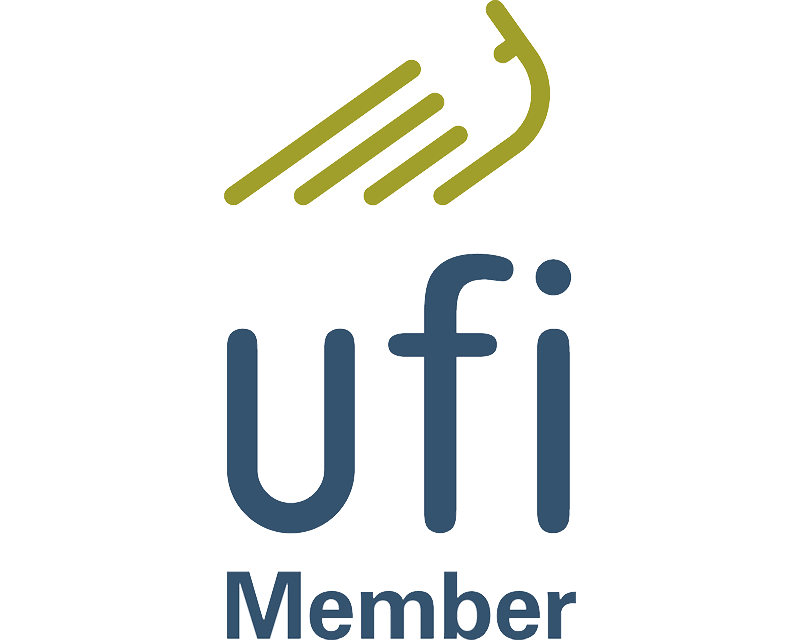- 10 30 AM
Enabling CCS in Ontario
Knowledge Partner : Enbridge
 Exhibition Floor
Exhibition Floor 10:30 AM - 11:15 AM
10:30 AM - 11:15 AM
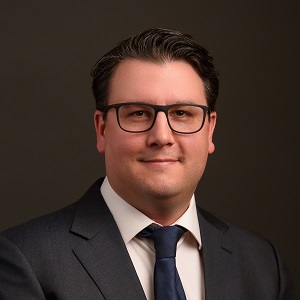
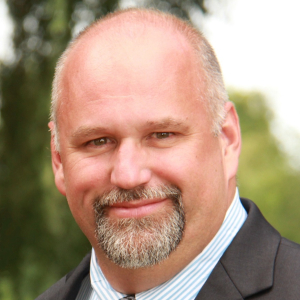
- 11 30 AM
Considerations when Converting from Air-Firing to Oxy-Firing for Carbon Capture and Storage
One potential method for capturing and sequestering carbon in either a new or retrofit case is to make use of oxy-combustion, a technology that B&W calls OxyBright. OxyBright replaces air in tradit...
Knowledge Partner : Enbridge
 Exhibition Floor
Exhibition Floor 11:30 AM - 12:15 PM
11:30 AM - 12:15 PM
Considerations when Converting from Air-Firing to Oxy-Firing for Carbon Capture and Storage
 11:30 AM - 12:15 PM
11:30 AM - 12:15 PM Exhibition Floor
Exhibition Floor
One potential method for capturing and sequestering carbon in either a new or retrofit case is to make use of oxy-combustion, a technology that B&W calls OxyBright. OxyBright replaces air in traditional combustion with pure oxygen. The benefit of this conversion is that it removes all nitrogen from combustion process and results in a nearly pure stream of CO2. Proper evaluation is needed to determine necessary system modifications for the concept to be implemented successfully and safely. During this presentation, B&W will discuss the various system and equipment design considerations for oxy firing and look at a few case studies of package boilers where oxy-combustion was applied.

- 12 30 PM
Scale up of Post-combustion CCUS and Performance of Technical Advancements
Over 95% of the world’s current CCUS is from pre-combustion CO2 sources, yet over 75% of the world’s emissions are from combustion. Post-combustion CO2 capture is challenged due to low flue gas con...
Knowledge Partner : Enbridge
 Exhibition Floor
Exhibition Floor 12:30 PM - 1:15 PM
12:30 PM - 1:15 PM
Scale up of Post-combustion CCUS and Performance of Technical Advancements
 12:30 PM - 1:15 PM
12:30 PM - 1:15 PM Exhibition Floor
Exhibition Floor
Over 95% of the world’s current CCUS is from pre-combustion CO2 sources, yet over 75% of the world’s emissions are from combustion. Post-combustion CO2 capture is challenged due to low flue gas concentrations (4-10%), low pressure and high temperature. Entropy’s novel MCCS™ is a modular carbon capture technology designed to retrofit existing industrial emitters for post-combustion carbon capture or design for integrated CCS on greenfield development. Furthermore, Entropy’s technology is active on the only commercially active post-combustion CCS on natural gas in the world, at the Glacier gas processing facility near Grande Prairie, Alberta.
Entropy will provide an overview of industrial point source emitters throughout North America using a combination of data analytics tools and public data with a focus on the regional distribution of post-combustion emissions; specifically, types of post-combustion emissions that include reciprocating engines, boilers and turbines. As Entropy demonstrates commerciality on the variety of post-combustion emissions types, Entropy will touch on the opportunities of emission reduction as well as the pathway to scale-up and how it will impact Canadian emissions reduction targets.
Project economics will be a key factor to the advancement of post-combustion carbon capture projects. Technological innovation in post-combustion carbon capture will be instrumental in enabling further industrial decarbonization. Metrics to quantify carbon capture performance include heat duty, cyclic capacity absorption and desorption rates. Heat duty is often represented as energy required per ton of CO2 captured (GJ/T). Traditional first-generation carbon capture solvents are known to require approximately 4 GJ/T of CO2 capture. Third-generation solvents coupled with break-throughs in engineer and design have led to a heat duty near 2 GJ/T. Entropy will discuss the economic impact technology can make on both capital and operating cost reduction.
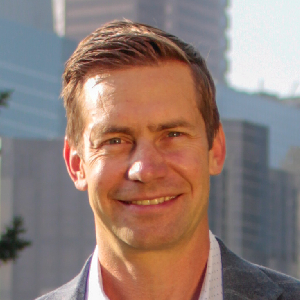
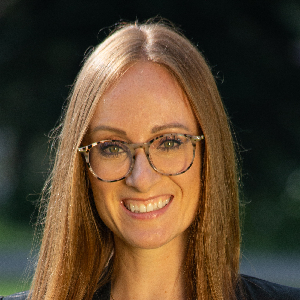
- 1 30 PM
The Overlooked Challenge in Post Combustion Carbon Capture
Post combustion carbon capture applications require a significant utility cooling demand which has major implications to the carbon capture plant capital cost and plot allocation requirements. Uti...
Knowledge Partner : Enbridge
 Exhibition Floor
Exhibition Floor 1:30 PM - 2:15 PM
1:30 PM - 2:15 PM
The Overlooked Challenge in Post Combustion Carbon Capture
 1:30 PM - 2:15 PM
1:30 PM - 2:15 PM Exhibition Floor
Exhibition Floor
Post combustion carbon capture applications require a significant utility cooling demand which has major implications to the carbon capture plant capital cost and plot allocation requirements. Utility cooling systems can account for up to 30% of the plant CAPEX and up to 50% of the plant footprint. Proper assessment and optimization of carbon capture plant cooling systems are therefore a necessity in improving carbon capture economics. Optimization of utility systems should not be looked at in isolation from the selected carbon capture technology. A wholistic approach considers impacts to carbon capture efficiency and performance from the utility system design basis including ambient air temperatures, water availability, steam system design and plot plan integration. Considerations around the facility water balance and cooling methodologies will shift the facility cost breakdown between the technology ISBL scope vs. the balance of plant. In this presentation a detailed review of utility cooling system design considerations will be presented. Participants will be provided with a roadmap to optimize utility cooling integration in the carbon capture plant design leveraging Fluor’s extensive experience evaluating and executing carbon capture projects to improve overall project economics.
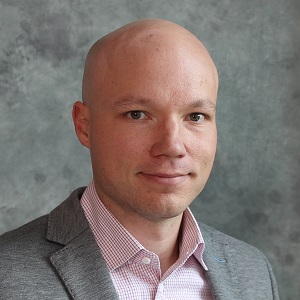
- 2 30 PM
CCUS - Unlocking a Sustainable Future
Carbon capture, utilization, and storage (CCUS) has gained increasing attention as a key solution to reducing greenhouse gas emissions and mitigating climate change. In this session, we will explor...
 Exhibition Floor
Exhibition Floor 2:30 PM - 3:15 PM
2:30 PM - 3:15 PM
CCUS - Unlocking a Sustainable Future
 2:30 PM - 3:15 PM
2:30 PM - 3:15 PM Exhibition Floor
Exhibition Floor
Carbon capture, utilization, and storage (CCUS) has gained increasing attention as a key solution to reducing greenhouse gas emissions and mitigating climate change. In this session, we will explore the state of the carbon industry and the progress made towards achieving sequestration targets. We will also examine the financial incentives available to accelerate the deployment of CCUS technologies and the pathway to commerciality. The first part of the session will focus on the current state of the carbon industry, including recent developments in the industry, policy, and regulations. We will examine the progress made in carbon capture and utilization, and discuss the challenges and opportunities in scaling up CCUS projects. The second part of the session will focus on the sequestration targets and the strategies to achieve them. We will discuss the technical and operational challenges of storing carbon underground, as well as the potential risks and benefits of different storage options. The final part of the session will explore the financial incentives available to support the development of CCUS projects. We will discuss the role of carbon pricing, tax credits, and other policy tools in driving investment and innovation in CCUS. All this will be rolled up into recommendations for projects to achieve commerciality. Overall, this conference will provide a comprehensive overview of the state of the CCUS industry, and the challenges and opportunities in the pathway to commerciality. We hope to bring together experts and stakeholders from industry, academia, and government to discuss and share ideas on how to accelerate the deployment of CCUS and achieve our climate goals.
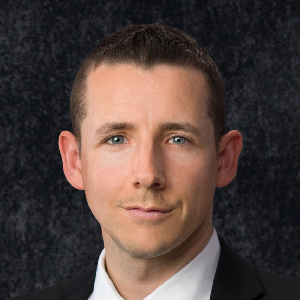
- 3 30 PM
Carbon Capture Digitalization - A Tool to Automate the Design and Costing of Carbon Capture Facilities
As the way we work and live changes, the way we engineer projects to provide reliable and efficient energy sources has to be agile to this ever varying landscape as we move towards net zero. Aker...
Knowledge Partner : Enbridge
 Exhibition Floor
Exhibition Floor 3:30 PM - 4:10 PM
3:30 PM - 4:10 PM
Carbon Capture Digitalization - A Tool to Automate the Design and Costing of Carbon Capture Facilities
 3:30 PM - 4:10 PM
3:30 PM - 4:10 PM Exhibition Floor
Exhibition Floor
As the way we work and live changes, the way we engineer projects to provide reliable and efficient energy sources has to be agile to this ever varying landscape as we move towards net zero. Aker Solutions has developed a tool to automate the design and estimating of post combustion carbon capture facilities. This tool facilitates the elimination of repetitive and resource intensive tasks to maximise value over volume by thinking beyond the standard engineering processes and also considers how we as individuals work on a day to day basis. By leveraging core design principles, post combustion carbon capture facilities concept designs can be quickly generated for a whole range of different emission sources, industries and sizes. The tool generates full CAPEX estimates using Aker’s own automated, consistent system utilizing out turn data from our significant as-built databases. This presentation describes the methodology, assumptions and design criteria used to generate the tool and how it can be used to efficiently meet challenging project scopes. This includes:
• Selection of carbon capture technology – reviewing and assessing available carbon capture technologies, determining the optimum technology to base the tool off of
• Solution description – detailed descriptions of the selected process technology option, how it works, how it can be applied to different projects.
• Design parameters and scaling – by utilising theoretical design criteria such as chemical reaction mechanisms, CO2 equilibrium data, as well as past project experience and engineering “rules of thumb”, a set of consistent design criteria are combined to generate flexible, robust and scalable designs
• Estimation – by relating of key sizing criteria to installed costs, individual equipment level cost curves can be generated leading to the production of detailed CAPEX estimates
• Case study – demonstrating how the developed tool can quickly and easily generate design, sizing and cost data to meet project scopes, allowing for greater value generation and manhour efficiency
• Next steps – details of where the tool will go next, such as developing the automated function to generate detailed, bespoke engineering design documentation such as engineering drawings, engineering deliverables such as line lists, heat & mass balances, equipment lists and more on a project by project basis

- 4 30 PM
Industry Networking Reception
 4:30 PM - 6:00 PM
4:30 PM - 6:00 PM Exhibition Floor
Exhibition Floor
- 10 30 AM
Promoting the Public’s Understanding of the CCUS Value Chain
Carbon Management Canada is collaborating with energy and cleantech industry partners like Enbridge to increase the public’s understanding of the CCUS supply chain. CMC aims to promote careers in t...
Knowledge Partner : Enbridge
 Exhibition Floor
Exhibition Floor 10:30 AM - 11:15 AM
10:30 AM - 11:15 AM
Promoting the Public’s Understanding of the CCUS Value Chain
 10:30 AM - 11:15 AM
10:30 AM - 11:15 AM Exhibition Floor
Exhibition Floor
Carbon Management Canada is collaborating with energy and cleantech industry partners like Enbridge to increase the public’s understanding of the CCUS supply chain. CMC aims to promote careers in the CCUS industry for Albertans, especially those located in regions where carbon hubs and new hydrogen activity is proposed. This presentation will introduce CMC’s project to educate Albertans on CCUS's role in energy diversification, as well as share workforce needs to establish Alberta as a global leader in CCUS.
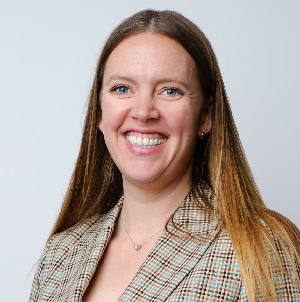
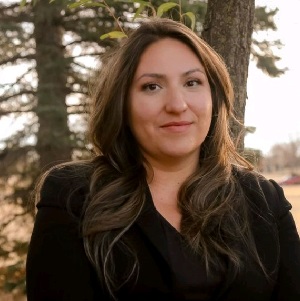
- 11 30 AM
CO2 Blowdown – More Complex than it First Seems
Carbon Capture and Storage (CCS) has the potential to play a vital role in decarbonization by reducing the emissions from the heavily polluting Industries. During the depressurization of dense pha...
Knowledge Partner : Enbridge
 Exhibition Floor
Exhibition Floor 11:30 AM - 12:15 PM
11:30 AM - 12:15 PM
CO2 Blowdown – More Complex than it First Seems
 11:30 AM - 12:15 PM
11:30 AM - 12:15 PM Exhibition Floor
Exhibition Floor
Carbon Capture and Storage (CCS) has the potential to play a vital role in decarbonization by reducing the emissions from the heavily polluting Industries. During the depressurization of dense phase or liquid phase CO2 pipelines, once the pipeline pressure reaches the bubble point, heat from the ambient is required to flash off the liquid CO2 in the pipeline. It is important to ensure that the system can be depressurized safely and quickly since the emitters will be forced to vent the CO2 from capture sites if alternate flow path is not available. In this work, we discuss the depressurization of an offshore pipeline and an onshore buried pipeline to identify the governing parameters for depressurization system design. As heat is required from the ambient to flash off the liquid CO2 in the pipeline during depressurization, the soil temperature and soil conductivity plays a major role in dictating the duration and the minimum temperature. A wet soil typically provides high thermal conductivity and aids in effective heat transfer from soil to the pipe whereas a dry soil having a low thermal conductivity increases the duration for depressurization. It should be noted that the change of temperature within the soil will also have an environmental impact. In this work we compared soil characteristics from different regions along the soil thermal gradients and their impact on blowdown duration for different pipeline sizes. We have compared predictions from industry standard thermal hydraulic modeling tools and made comparisons against detailed 3D heat transfer models based on Computational Fluid Dynamics. Based on the work, we have found out that accurate heat transfer modeling between the soil, pipe and ambient is required along with an analysis of the seasonal ambient temperature variation. We have identified deficiencies with industry standard tools and have proposed a novel approach to couple 3D soil heat transfer model with a multiphase pipeline model for depressurization. The results provided by this approach are used by regulators to assess the environmental impacts of the project, especially for sensitive zones such as the coastal areas.
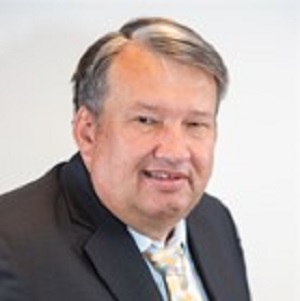
- 12 30 PM
A Structured Approach for Process Electrification Journey
The presentation will review a structured approach to process electrification to reduce carbon footprint in electro heavy industries. Discuss assessment, specific areas for electrification and leve...
Knowledge Partner : Enbridge
 Exhibition Floor
Exhibition Floor 12:30 PM - 1:15 PM
12:30 PM - 1:15 PM
A Structured Approach for Process Electrification Journey
 12:30 PM - 1:15 PM
12:30 PM - 1:15 PM Exhibition Floor
Exhibition Floor
The presentation will review a structured approach to process electrification to reduce carbon footprint in electro heavy industries. Discuss assessment, specific areas for electrification and leverage demand side flexibility. Review potential integration of electrical and process in the context of digital twin.
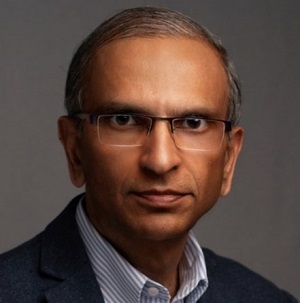
- 1 30 PM
Carbon Capture Pipeline and Injection Materials Considerations
A substantial amount of the world’s rising energy demand is forecast to still be met by fossil fuels over the next decade, thus CCS will need to play an important role to meet current and future ne...
Knowledge Partner : Enbridge
 Exhibition Floor
Exhibition Floor 1:30 PM - 2:15 PM
1:30 PM - 2:15 PM
Carbon Capture Pipeline and Injection Materials Considerations
 1:30 PM - 2:15 PM
1:30 PM - 2:15 PM Exhibition Floor
Exhibition Floor
A substantial amount of the world’s rising energy demand is forecast to still be met by fossil fuels over the next decade, thus CCS will need to play an important role to meet current and future net zero targets. Both pipeline design and downhole CO2 injection present important material and mechanical challenges that differ from conventional oil and gas production and recently further experience has been gained with CCUS projects starting up in Europe. Transportation pipelines for CO2 are becoming necessary for large scale carbon capture operations to direct and tie in multiple emission sources. The design approach for these projects need to consider a number of important factors such as low temperature embrittlement, risk of running fractures, and the presence of liquid water. Due to scope of many proposed projects and the distances required to bring emission to suitable storage areas, carbon steel continues to be the material that makes both technical and economic sense. However, to support broader decarbonization of industry more and more sources of CO2 will need to be tied in, resulting in a composition with a potentially broader range of contaminants. The effect of these impurities (H2S, H2O, O2, SO2, NO2) on pipeline systems are currently being studied by joint industry groups to align the industry and build suitable standards. On the injection side, CCUS also have unique design challenges when compared to conventional hydrocarbon production. One of the main criticalities recognized in CCS casing and tubing design is related to the Joule-Thomson effect during the injection phase. The rapid depressurization of the string by the injection into highly depleted reservoirs can cause gas expansion and the subsequent cooling of the entire system in both operational and critical conditions. In some scenario’s temperatures can drop to as low as -70°C placing connections under unique loading conditions. Tenaris has continued research and testing to increase our understanding of these effects on currently utilized injection materials and connections This knowledge bar will discuss the effects of CO2 on Carbon steels for pipeline transportation, Tenaris experiences with large scale Carbon capture projects and will also touch on progress in testing for downhole injection materials under extreme low temperature conditions.
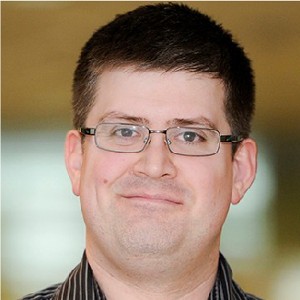
- 2 30 PM
Social License, Collaboration, Indigenous Participation and CCUS: Lessons from Responsible Natural Gas Certification
Canada's ability to develop and scale CCUS presents significant opportunity, but also substantial social license and equity challenges. Mounting evidence indicates that social factors exert signif...
Knowledge Partner : Enbridge
 Exhibition Floor
Exhibition Floor 2:30 PM - 3:15 PM
2:30 PM - 3:15 PM
Social License, Collaboration, Indigenous Participation and CCUS: Lessons from Responsible Natural Gas Certification
 2:30 PM - 3:15 PM
2:30 PM - 3:15 PM Exhibition Floor
Exhibition Floor
Canada's ability to develop and scale CCUS presents significant opportunity, but also substantial social license and equity challenges. Mounting evidence indicates that social factors exert significant influence upon CCUS project viability. New research highlights that economic and societal constraints are more significant barriers for CCUS development than technical innovation or scientific knowledge. Already, social license concerns are impeding development of the major pipelines and hubs proposed in the US. From 1996 to 2018, 78% of larger CCUS projects (greater than 0.3 Mt CO2 per year) were either cancelled or put on hold. The White House estimates that developers would need to build another 90,000 km of pipelines for the US to permanently store enough carbon to reach net zero emissions by 2050. Whether we consider wind farms or gas wells, the production and generation of the energy and management of the associated waste streams has profound impacts on nearby people and environments. Responsible development of energy infrastructure that meets the highest social and environmental standards can dramatically reduce negative impacts while enhancing benefits for all stakeholders, reducing risk and enhancing economic outcomes. Successful approaches are more transparent and collaborative than they ever been in the past. Many prime locations for long term CO2 storage are on Indigenous lands. The relationships and partnerships that are built with Indigenous communities will be critical determinants of the ability of Canadian CCUS projects to go from concept to successful operation. Equitable Origin was born in 2009 out of personal experiences of Indigenous communities in the Ecuadorian Amazon, as they dealt with the devastating consequences of oil spills and related destruction of habitat. Following extensive engagement with affected communities and other stakeholders in energy development throughout the Amazon Basin, Equitable Origin expanded to other regions, issuing the world's first independent certification of a responsibly-operated oil production site in 2014, and for shale gas development in 2017. Indigenous rights and community engagement are at the core of these standards, along with environmental protection and emissions reductions. Canada has been a leader in the adoption and use of these voluntary independent standards in its certified natural gas production, which today represents nearly 30% of the total market. This talk will examine the potential of a similar model for Canadian leadership in CCUS development, supported through collaborative stakeholder engagement and the transparent adoption of voluntary standards.




